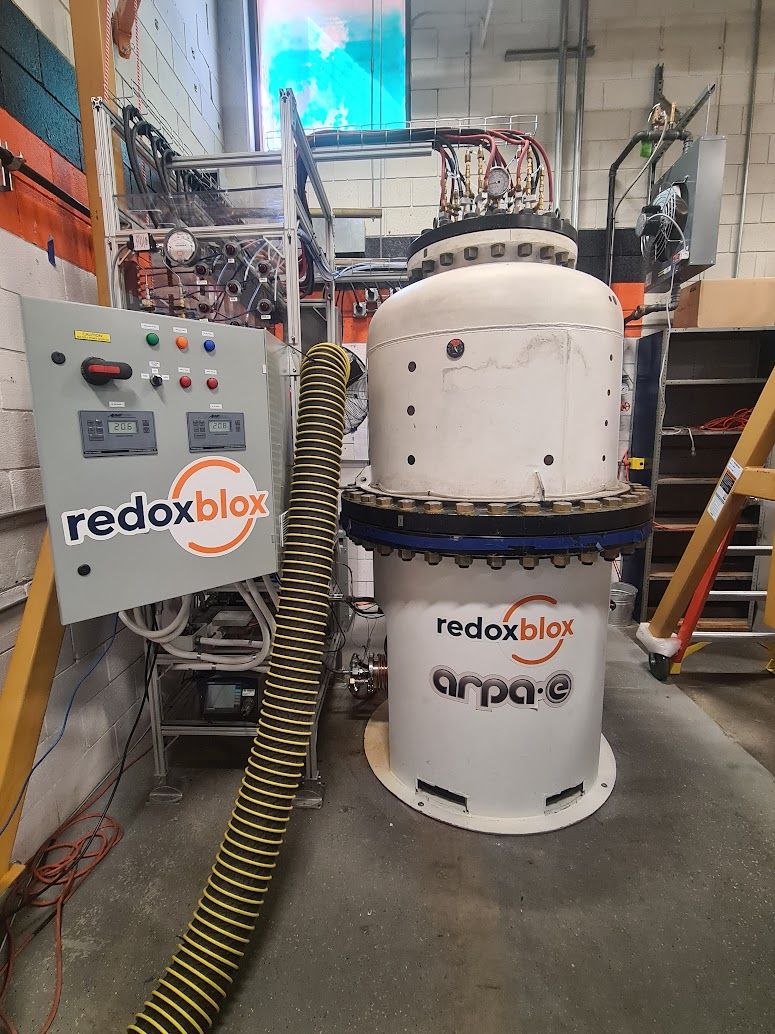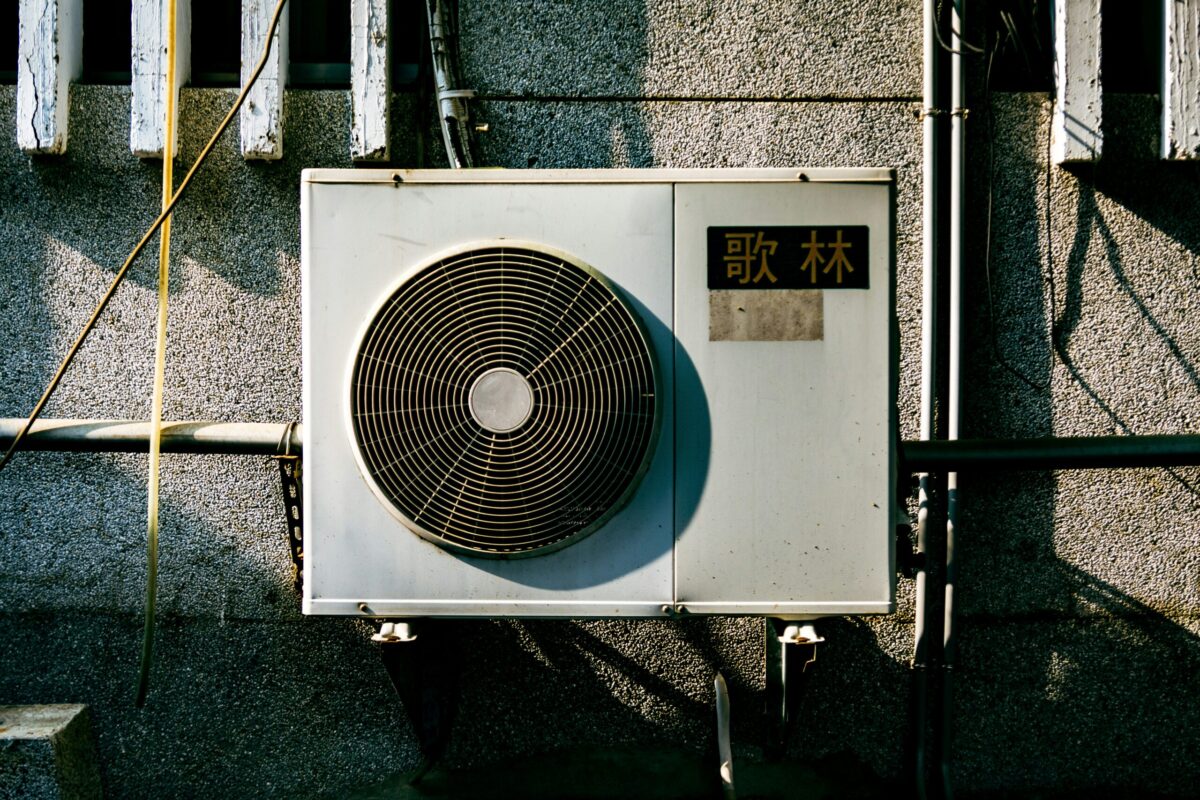RedoxBlox has developed a high-temperature TCES technology which boasts energy density on par with lithium-ion battery technology, while utilizing inexpensive and abundant raw materials.
The company’s storage material operates at temperatures up to 1,500 C and can be fully charged in less than four hours. It is billed as non-toxic, non-flammable, and fully recyclable.
The RedoxBlox storage module features a vessel filled with a proprietary and abundantly available, low-cost metal oxide material. To charge, renewable electricity heats the metal oxide pellets from 1,000 C to 1,500 C, triggering a chemical reaction that releases oxygen and stores heat in the form of chemical energy.
Later, when stored energy is needed, air is directed through the module and the metal oxide consumes oxygen to reverse the reaction and release heat to the air. Hot air from the RedoxBlox module can then deliver heat to an array of industrial processes or to a gas turbine to generate electricity, thus serving as a drop-in replacement for natural gas.
With its solution, RedoxBlox aims to enable electrification of industrial heat for the difficult-to-decarbonize sectors including – cement, steel, food and beverage, refining and chemicals manufacturing. It also seeks to enable more renewable electricity sources such as solar and wind to come onto the electrical grid through ultra-low-cost energy storage.
Since 2018, when it identified proprietary redox material with record-breaking energy density of 2,500 MJ/m3, RedoxBlox has passed numerous milestones both in terms of technology development and funding.
The company said this week that it has secured $8.9 million from the California Energy Commission (CEC) and $6.7 million from the US Department of Energy (DOE).
These grants follow the company’s $9.4 million Series A financing led by Khosla Ventures for a total of $25 million to support demonstrations of RedoxBlox’s TCES technology.
In partnership with the University of California, San Diego (UCSD) and the Electric Power Research Institute (EPRI), the CEC selected RedoxBlox to pioneer long-duration energy storage solutions. Hosted by UCSD, the project will leverage RedoxBlox’s technology to power a turbogenerator, providing up to 24 hours of energy storage capacity.
Similarly, the DOE’s Industrial Efficiency and Decarbonization Office selected RedoxBlox for a first-of-its-kind, industrial-scale TCES, conducted in partnership with Dow and EPRI. This application will showcase the decarbonization of industrial steam at the Dow West Virginia plant through electrification using long-duration TCES.
“Our goal is simple: use electrification and thermochemical energy storage to compete as a zero-carbon replacement for natural gas,” said RedoxBlox CTO Joerg Petrasch. “We have proven the science. Our focus now is to scale up to commercially relevant sizes. Funding from the DOE and CEC across two large markets and the partnerships with our customers across multiple industrial sectors are key enablers.”
In addition to Khosla Ventures, RedoxBlox is backed by top climate technology firms, including Breakthrough Energy Ventures (BEV). BEV led the company’s Seed round and participated in its Series A fundraising round.
RedoxBlox has operations in the United States and Europe. The company’s main headquarters and R&D facility are in San Diego, California. It also has a large-scale prototype testing facility in Bend, Oregon. Its European subsidiary is based in Dornbirn, Austria.
This content is protected by copyright and may not be reused. If you want to cooperate with us and would like to reuse some of our content, please contact: editors@pv-magazine.com.




1 comment
By submitting this form you agree to pv magazine using your data for the purposes of publishing your comment.
Your personal data will only be disclosed or otherwise transmitted to third parties for the purposes of spam filtering or if this is necessary for technical maintenance of the website. Any other transfer to third parties will not take place unless this is justified on the basis of applicable data protection regulations or if pv magazine is legally obliged to do so.
You may revoke this consent at any time with effect for the future, in which case your personal data will be deleted immediately. Otherwise, your data will be deleted if pv magazine has processed your request or the purpose of data storage is fulfilled.
Further information on data privacy can be found in our Data Protection Policy.